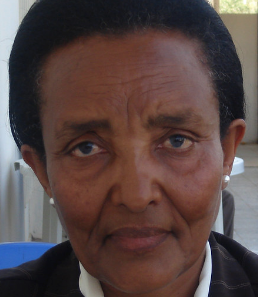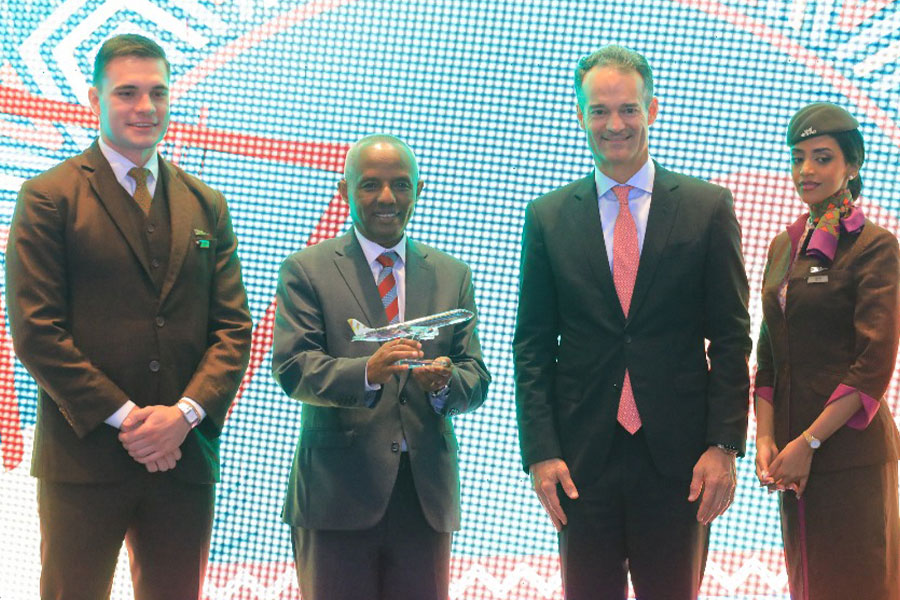
Viewpoints | Mar 11,2023
Apr 30 , 2021.
Nothing can better describe Ethiopia's state of affairs today than the French idiom: "Plus ça Change, Plus C'est la Même Chose". Indeed, the more things appear to change, the more they stay the same. The upcoming national elections are one illustration of the truism in French wisdom.
Voters' registration offices around Addis Abeba are non-discrete rooms, mostly inside government offices. If it were not for a modest-sized banner reading, “voter registration,” the offices would be easy to miss. Inside, two or three people receive eligible voters and write down background information in what looks like a ledger. In return, the voter gets a card that must be brought before the electoral officials on the polling date, June 5, 2021.
Over 18 million people have gone through this process until April 23, 2021. This is despite an eligible voting adult population of over 50 million. Officials at the National Electoral Board of Ethiopia (NEBE) were quite worried as they should be with a meagre voters' turnout. They have postponed the registration deadline by an additional two weeks.
Birtukan Mideksa, head of the Board, had forwarded her concerns that widespread security problems and logistical issues have meant that half of almost 50,000 registration offices have not yet been opened. This was followed by a last-minute push to improve participation, including through outreach by text messaging. Even to a passing observer, a low turnout for registration and possibly even voting would not be surprising. Neither would officials such as Birtukan, who was an opposition politician during the contested 2005 elections, miss how the perception of fairness is a major obstacle.
At the heart of the crisis in Ethiopia has always been the political force that captures the state. There has never been one whose legitimacy to rule was unquestioned and uncontested. The government's legitimacy comes from a popular mandate expressed through national elections deemed credible, both in the process and outcome. The administration of Prime Minister Abiy Ahmed (PhD), when it came to office in April 2018, was mandated to singularly focus on ensuring this happens.
Alas! It wanted to bite off more than it could chew, hence the present predicaments for Ethiopia.
Two contradictory things are occurring. No topic dominates conversations and consumes the talking heads in the media more than power politics. And the sense of physical security has evaporated.
How could it not, considering that a war taking place in the Tigray Regional State and political violence - either communal or targeted attacks on civilians by armed groups - have become the norm of the day? An insurgency that popped up from Western Wellega encroaching the capital? Militia forces loyal to the Afar and Somali regional states were in open warfare with casualties of lives in the hundreds? Neighbouring countries such as Sudan advanced in forceful control of disputed territories, and Eritrea refused to withdraw its forces from Tigray despite the commitment by Ethiopia's leaders to the international community? A series of massive rallies in cities and townships of the Amhara Regional State, protesting the atrocities committed on civilians in western and south-western parts of the country? And horizontal conflicts in Ataye and Qimant in Amhara, and a number of places in Benishangul-Gumuz regional states?
Under normal circumstances, the heightened sense by the citizenry should have substantially increased the enthusiasm to vote. Regrettably, the electoral and political process does not inspire much confidence in voters. Not even the televised debates among the political parties invoked passion and enthusiasm among voters.
Despite much hype about a series of reforms to broaden the space for competitive politics, the lack of inclusivity of the political process remains the order of the game. Several political actors have been either systematically or downright excluded from participation in the elections. What remains, 47 of them, are either unable to put up enough candidates or do not offer a diversity of options for voters.
An illustration of the poor performance of some of these parties is evidenced by looking at the space allotted them in state-owned publications such as Addis Zemen, an Amharic state daily. Several of these spaces are left blank; the parties have not made use of them. For many voters, an act of voting would be a choice between parties they have either never heard of or are too similar in their worldview to offer meaningful alternatives.
Much more critical than perceptions towards the electoral process is the sheer hopelessness people feel about politics. There rarely is a population in the world whose political class has thoroughly failed it to the point that violence has become a fact of life - daily, regular, and privatised. Not surprisingly, many have developed a fatalistic view that it is all leading towards impending doom. They are not sure what elections would accomplish when those with state power, and outside of it, continue to double down on a path that has led to such violence, dispossession, and lack of moral purpose.
The collective psychological effect created by the terror of violence has given way to a resigned acceptance of fate or the resort to violence.
Yes. The more things appear to change, the more they remain the same.
Ethiopians have reasons to doubt what elections could bring them. This is not the first time they have been asked to vote, and none of the previous elections has been perceived to be credible.
They have also witnessed another regional election late last year in the Tigray region. No doubt, the federal and local governments never saw eye-to-eye on it. The former declared it “null and void.” However, the public was told to vote by those in authority for nearly three decades; they were told that their voice would matter. They came out in their millions and cast their ballots.
Could it be said that they decided through the act of voting their political future?
They are finding out the hard way that it is the gun that rules in the Horn of Africa. Combined with political violence in the rest of the country, including the cruel killings of innocent civilians, it is also a lesson heard loud and clear by the rest of the population. What is in the minds of civilians is the real possibility of loss, dispossession, displacement and loss of lives. Elections seem like a liberty better suited to societies whose people are not deadly terrified of losing their lives or that of their loved ones.
The upcoming elections are not seen as a means to an end, to a better political future. Like all the ones that came before, it runs the risk of being perceived as an exercise to legitimise a regime and satisfy development partners who want the excuse to continue pumping money.
It was not meant to end like this when the political opening began three years ago. It was rather hoped that the new leadership that took the mantle from Hailemariam Desalegn would have addressed the issues of narrowed political space, insecurity, and growing polarisation among communities. Today, these manifest themselves far worse than ever before, leading to popular anxiety, fear and resignation.
This does not, however, mean that voters should avoid the polls altogether. Few can deny that lack of social trust, certainty, and hopefulness, contribute to an unprecedented level of apathy that things will get better. But the electoral process itself encourages political debates and civic engagement. More importantly, the power vacuum and constitutional crisis that could otherwise be created will not improve matters. The alternative is an ever-weakening state and a country that could grow in its devastation, as citizens are finding out in real-time today.
Stuck between terrible choices, it is, in the end, better to choose the route that at least holds the pieces together.
Ethiopians are confronted with a Hobbesian fear. In the absence of a government, the country falls in the perpetual "war of all against all". It will be a life "solitary, poor, nasty, brutish and short". It will be an all-out civil war. After all, an existing bad government is a matter of judgment. That there is no government will be a dreadful fact.
PUBLISHED ON
Apr 30,2021 [ VOL
22 , NO
1096]

Viewpoints | Mar 11,2023

Commentaries | Nov 26,2022

Radar | Sep 02,2023

Radar | Jul 22,2025

Sunday with Eden | Aug 25,2024

Fortune News | Oct 12,2025

Viewpoints | Apr 30,2022

Radar | Dec 05,2018

Commentaries | Oct 24,2020

Verbatim | Aug 17,2019

Photo Gallery | 173208 Views | May 06,2019

Photo Gallery | 163435 Views | Apr 26,2019

Photo Gallery | 153380 Views | Oct 06,2021

My Opinion | 136492 Views | Aug 14,2021

Dec 22 , 2024 . By TIZITA SHEWAFERAW
Charged with transforming colossal state-owned enterprises into modern and competitiv...

Aug 18 , 2024 . By AKSAH ITALO
Although predictable Yonas Zerihun's job in the ride-hailing service is not immune to...

Jul 28 , 2024 . By TIZITA SHEWAFERAW
Unhabitual, perhaps too many, Samuel Gebreyohannes, 38, used to occasionally enjoy a couple of beers at breakfast. However, he recently swit...

Jul 13 , 2024 . By AKSAH ITALO
Investors who rely on tractors, trucks, and field vehicles for commuting, transporting commodities, and f...

Oct 12 , 2025 . By BEZAWIT HULUAGER
A sweeping change in the vehicle licensing system has tilted the scales in favour of...

Oct 12 , 2025 . By NAHOM AYELE
A simmering dispute between the legal profession and the federal government is nearin...

Oct 12 , 2025 . By NAHOM AYELE
A violent storm that ripped through the flower belt of Bishoftu (Debreziet), 45Km eas...

Oct 12 , 2025 . By BEZAWIT HULUAGER
An evolving joint venture between Etihad Airways and Ethiopian Airlines is shaping up...